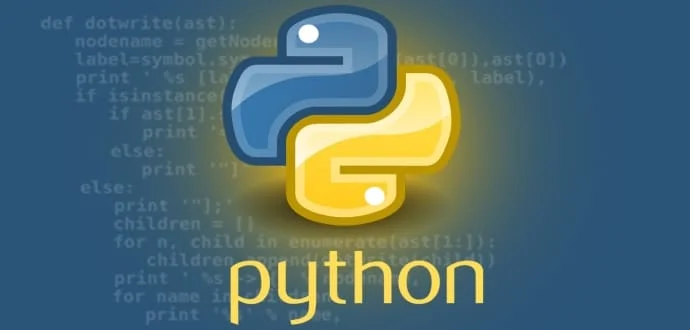The Complete Python Training Curriculum for Success
 Vaishali pal
Vaishali pal
In today's digital age, programming skills are becoming increasingly essential, and Python stands out as one of the most versatile and widely used programming languages. Whether you're a beginner looking to dive into the world of coding or an experienced developer aiming to expand your skill set, a comprehensive Python training curriculum can pave the way for success in various fields, including web development, data science, artificial intelligence, and more. In this blog post, we'll outline a structured Python training curriculum designed to equip learners with the knowledge and skills needed to excel in their chosen career paths.
Introduction to Python:
To embark on your Python journey, you need to start with the fundamentals. Begin by understanding the basic syntax, data types, variables, and operators in Python. Familiarize yourself with control structures such as loops and conditional statements to write efficient and logical code. Online platforms like Codecademy, Coursera, or free resources like the official Python documentation can provide interactive tutorials and exercises to grasp these foundational concepts.
Object-Oriented Programming (OOP) with Python:
Python is an object-oriented programming language, which means understanding OOP principles is crucial for building scalable and maintainable applications. Dive into topics like classes, objects, inheritance, polymorphism, and encapsulation. Explore how to design and implement classes to model real-world entities effectively. Resources like books such as "Python Crash Course" by Eric Matthes or online courses on platforms like Udemy can guide you through mastering OOP concepts in Python.
Data Structures and Algorithms:
To become a proficient Python developer, you must have a solid understanding of data structures and algorithms. Learn about lists, tuples, dictionaries, sets, stacks, queues, trees, graphs, and their associated operations and algorithms. Practice implementing common algorithms like sorting and searching techniques in Python. You can hone your problem-solving abilities with practical exercises and challenges from websites like LeetCode, HackerRank, or platforms that offer specialized courses like DataCamp.
Web Development with Django or Flask:
Python is a popular language for web development, and frameworks like Django and Flask enable programmers to create reliable online applications quickly. Dive into web development by learning about the MVC (Model-View-Controller) architecture, routing, templates, forms, databases, authentication, and deployment. Start with the official documentation of Django or Flask and complement your learning with tutorials, courses, or books like "Django for Beginners" by William S. Vincent or "Flask Web Development" by Miguel Grinberg.
Data Science and Machine Learning:
Python's rich ecosystem of libraries makes it a powerhouse for data science and machine learning tasks. Learn how to use libraries like NumPy, pandas, matplotlib, and scikit-learn for data manipulation, analysis, visualization, and machine learning modeling. Understand the basics of statistics, probability, and linear algebra to interpret and analyze data effectively. Explore online courses like those offered by Coursera, edX, or specialized platforms like Kaggle to gain hands-on experience with real-world datasets and projects.
Artificial Intelligence and Deep Learning:
Python's simplicity and versatility make it a preferred choice for artificial intelligence (AI) and deep learning projects. Delve into neural networks, deep learning frameworks like TensorFlow and PyTorch, and advanced techniques such as convolutional neural networks (CNNs) and recurrent neural networks (RNNs). Resources like the "Deep Learning Specialization" on Coursera by Andrew Ng or "Deep Learning with Python" by François Chollet can provide comprehensive insights into building and deploying AI applications using Python.
Testing, Debugging, and Documentation:
A successful Python developer must also master essential skills such as testing, debugging, and documenting code. Learn about unit testing, integration testing, debugging techniques, and writing clear and concise documentation. Tools like pytest, pdb, and Sphinx can aid in testing, debugging, and generating documentation for your Python projects. Practice writing clean, maintainable, and well-documented code to enhance collaboration and code maintainability.
Continuous Learning and Community Engagement:
Python is an ever-evolving language, with new features, libraries, and best practices emerging regularly. Stay updated with the latest trends and advancements by participating in online communities, attending meetups, conferences, and contributing to open-source projects. Engage with fellow Python enthusiasts on platforms like Stack Overflow, Reddit (r/learnpython), or join Python-focused communities on social media platforms like Twitter and LinkedIn.
Conclusion:
In essence, the best online & offline Python Training Certification Course in Navi Mumbai, Vadodara, Thane, Mumbai & all other cities in India not only equips learners with technical proficiency but also fosters a mindset of lifelong learning and community engagement, setting them on a path towards success in their chosen career paths. Whether you're a beginner or an experienced developer, the journey through Python promises endless possibilities and opportunities for growth.
Subscribe to my newsletter
Read articles from Vaishali pal directly inside your inbox. Subscribe to the newsletter, and don't miss out.
Written by

Vaishali pal
Vaishali pal
I am Vaishali pal, working as a Digital Marketer and Content Marketing, I enjoy technical and non-technical writing. I enjoy learning something new. My passion and urge to gain new insights into lifestyle, Education, and technology have led me to Uncodemy which is the best training institute for Data Science, Software Testing, Java, Python, Full Stack Development and Data Analytics course in Mumbai, Thane,Vadodara, Delhi, Noida, Gurgaon and your nearest city in India.